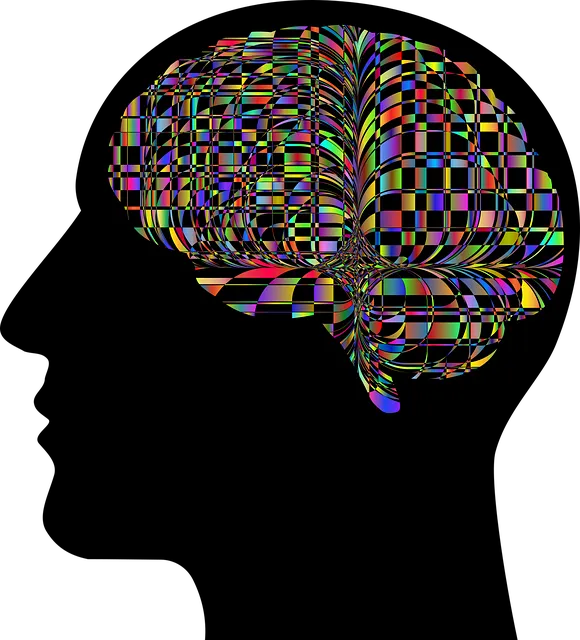Mental wellness self-assessment tools, like those developed by Kaiser Mental Health Classes in Boulder, are powerful resources for personal growth and early mental health management. These tools, through guided journaling exercises, help individuals understand their emotional states and social connections, fostering effective coping strategies and timely access to support. By integrating user feedback, structured frameworks, and continuous evaluation, these assessments cater to diverse demographics and enhance mental well-being outcomes, particularly within the curriculum of Kaiser mental health classes Boulder.
Mental wellness self-assessment tools play a pivotal role in fostering individual awareness and promoting overall well-being. This article delves into the development of such tools, inspired by the Kaiser Approach, with a focus on their significance for mental health initiatives in communities like Boulder. We explore key components for effective frameworks, the importance of feedback integration, and strategies for continuous improvement, drawing insights from successful implementation in local Kaiser mental health classes.
- Understanding Mental Wellness Self-Assessment: The Kaiser Approach
- Why Self-Assessment Tools Are Essential for Mental Health Awareness
- Developing Effective Assessment Frameworks: Key Components
- Integrating Feedback and Personal Growth Strategies
- Testing, Implementation, and Continuous Improvement in Boulder's Mental Health Classes
Understanding Mental Wellness Self-Assessment: The Kaiser Approach

Mental wellness self-assessment tools play a crucial role in personal growth and mental health management. One notable approach is the Kaiser model, developed by healthcare giants like Kaiser Mental Health Classes in Boulder. This method encourages individuals to engage in introspective exercises that encompass various aspects of their lives, from emotional states to social connections. The process involves guided journaling, where users record thoughts, feelings, and experiences, providing valuable insights into their mental wellness.
By employing the Kaiser approach, individuals can better understand their emotional landscapes and identify potential areas for improvement. This self-assessment serves as a foundational step in developing effective coping strategies and seeking appropriate support. It’s worth noting that such tools also facilitate early detection of mental health issues, allowing for timely intervention and access to Trauma Support Services, especially when integrated with comprehensive Risk Management Planning for Mental Health Professionals.
Why Self-Assessment Tools Are Essential for Mental Health Awareness

Self-assessment tools play a pivotal role in fostering mental health awareness and understanding among individuals. These resources empower people to take an active role in evaluating their emotional well-being, identifying potential issues, and seeking appropriate support. In today’s fast-paced world, where stress and mental health challenges are prevalent, self-assessments offer a convenient and accessible way for folks, especially those enrolled in Kaiser mental health classes Boulder, to monitor their emotional state without the barriers of clinical settings.
By incorporating self-assessment tools into personal routines, individuals can gain valuable insights into their emotional landscapes. This process facilitates early detection of mental health concerns, enabling timely interventions. Moreover, it aligns with the broader context of Mental Health Policy Analysis and Advocacy, where promoting self-care and awareness is a key strategy for creating a compassionate society that prioritizes Emotional Healing Processes. Compassion Cultivation Practices, for instance, can be integrated into these tools to foster empathy, reduce stress, and enhance overall mental wellness.
Developing Effective Assessment Frameworks: Key Components

Developing effective mental wellness self-assessment tools requires a structured and comprehensive framework that caters to diverse individual needs. At Kaiser Mental Health Classes Boulder, our approach focuses on several key components for creating robust assessment tools. Firstly, we emphasize the importance of adaptability, ensuring these tools can be tailored to various demographics and unique mental health contexts. Incorporating factors like age, cultural background, and specific mental health conditions is vital to making assessments inclusive and relevant.
Secondly, a comprehensive risk assessment is integral to our method, particularly for mental health professionals. This includes gauging emotional intelligence—the ability to recognize and manage one’s emotions—and fostering cultural sensitivity in healthcare practice. By addressing these aspects, we aim to enhance the accuracy and usefulness of self-assessment tools, enabling individuals to take control of their mental wellness journeys with informed insights and targeted support.
Integrating Feedback and Personal Growth Strategies

Integrating feedback is a pivotal step in developing effective self-assessment tools for mental wellness. Feedback mechanisms should be designed to encourage reflection and personal growth, allowing individuals to understand their strengths and areas for improvement. This process can draw from resources like Kaiser mental health classes Boulder offers, which provide structured frameworks for mood management and coping strategies. By integrating feedback, users of these tools can set achievable goals, gain insights into their emotional patterns, and learn valuable self-awareness exercises.
Personal growth strategies should be tailored to meet the diverse needs of individuals engaging with these assessments. Community outreach program implementation, modeled after successful initiatives like those found in Boulder, can foster a supportive environment where users feel encouraged to share openly. This community-centric approach not only enhances the validity and reliability of feedback but also promotes a sense of belonging and collective well-being. Through ongoing evaluation and adaptation, self-assessment tools can evolve to better serve their purpose, ultimately contributing to improved mental health outcomes.
Testing, Implementation, and Continuous Improvement in Boulder's Mental Health Classes

In the development of mental wellness self-assessment tools for Kaiser mental health classes Boulder, rigorous testing and implementation strategies are essential. After crafting the assessment tools, they undergo extensive pilot testing within a controlled environment, allowing instructors to gauge their effectiveness in identifying and addressing students’ mental health concerns. This phase is crucial for refining the tools and ensuring they align with the unique needs of the Boulder student population. Once approved, these assessments become integral components of Kaiser’s mental health classes, empowering educators to implement tailored interventions.
Continuous improvement drives the success of these initiatives. Regular feedback from instructors and students provides valuable insights, highlighting areas where the self-assessment tools can be further enhanced. By integrating this feedback loop, the program can adapt to evolving mental health trends and challenges, ensuring that Stress Reduction Methods and Positive Thinking remain at the forefront. This ongoing process fosters a dynamic learning environment, ultimately contributing to improved Mental Wellness outcomes for students in Boulder’s Kaiser mental health classes.
Mental wellness self-assessment tools play a pivotal role in fostering mental health awareness and personal growth. By adopting frameworks like the Kaiser approach, integrating feedback mechanisms, and continuously improving through testing and implementation, individuals in communities like Boulder’s mental health classes can navigate their emotional well-being effectively. These tools empower folks to take charge of their mental health, making it easier to recognize when professional help is needed. As discussed, prioritizing self-assessment encourages proactive mental wellness management, ultimately enhancing overall quality of life.






